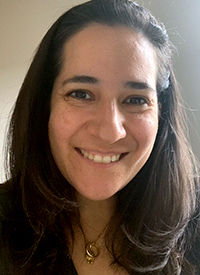Books
Books
Liu, L. B., Mohammed, N., Bauler, C. V., Lin, C., & Kapur, K. (2025). Funds of knowledge in teacher education: Sustaining local diversity amidst global standards. IGI Global.* https://www.igi-global.com/gateway/chapter/378582
Lin, C. & Bauler, C. V. (2023). Reimagining dialogue: Identity, language and power. Multilingual Matters. https://www.multilingual-matters.com/page/detail/?K=9781800414716
Chapters
Chapters
Bauler, C. V. (2025). Funds of knowledge and ways of languaging: Podcasting in teacher education. L. B. Liu, N. Mohammed, C. V. Bauler, C. Lin, & K. Kapur. Funds of knowledge in teacher education: Sustaining local diversity amidst global standards. IGI Global.
Bauler, C. V., & Licata, G. (2024). Unsettling Second Language Acquisition Theories through Raciolinguistic, Crip, and Translanguaging Perspectives. International Perspectives on Critical English Language Teacher Education: Theory and Practice, 155.
Bauler, C. V. & Karanović, V. (2023). Twitter as thinking communities: Responding, reacting and acting on linguistic discrimination. In C. Lin and C. V. Bauler (Eds.), Reimagining dialogue: Identity, language and power. Multilingual Matters.
Bauler, C. V., Thornburg, D., Ceballos, O., Pineda, C., Kogan, E., & Sorri, P. (2022). Tackling problems, finding solutions: Creativity and collaboration in cross-cultural virtual exchange during a pandemic. In S. Hilliker (Ed.), Virtual exchange as a way to support SLA: Studies on language learning through online interaction. [Trends in Applied Linguistics]. De Gruyter.
Bauler, C. V. & Kang, E. J. S. (2021). Exploring teacher residency candidates’ perceptions of preparation to support immigrant students in elementary classrooms. In R. M. Reardon & J. Leonard (Eds.), Learning to read the world and the word: School-University-Community collaboration to enrich immigrant literacy and teacher education. IGI-Global.
Bauler, C. V., Wang, X. L. & Thornburg, D. (2020). Developing global-mindedness in teacher education through virtual and international intercultural experiences. In L. Baecher (Ed.), Study Abroad for Pre- and In-Service Teachers: Transformative learning at the global scale. London: Routledge.
Bauler, C. V. (2019). Speech acts and cross-cultural pragmatics. In N. Erdogan & M. Wei (Eds.), Applied Linguistics for teachers of culturally and linguistically diverse learners (pp. 223-238). Hershey, PA: IGI Global.
Bauler, C. V. & Licata, G. (forthcoming). Unsettling Second Language Acquisition theories through raciolinguistic, crip, and translanguaging perspectives. In A. F. Selvi & C. Kocaman (Eds.), International perspectives on critical language teacher educator: Theory and practice. Bloomsbury.
Articles
Articles
Bauler, C. V. (2023). Have we learned anything? Raciolinguistic ideologies in remote learning public discourses. Journal of Critical Study of Communication & Disability, 1(1).
Brea-Spahn, M. R. & Bauler, C. V. (2023). Where Do You Anchor Your Beliefs? An Invitation to Interrogate Dominant Ideologies in Speech-Language Pathology. Language, Speech, and Hearing Services in Schools, 14.
Lee, O., Bauler, C., Kang, E., & Ocol, T. (2022). “Doing” science, using language: Professional development to promote science and language integration with a focus on multilingual learners. NYS TESOL Journal, 9(1), 3-15.
Bauler, C.V. (2021). 'Flipgrid netiquette': Unearthing language ideologies in the remote learning era. English in Education, 3, [Special Issue: Grammar in schools: politics, policies and pedagogies].
Bauler, C. V. & Kang, E. J. S. (2020). Elementary and ESOL teachers’ resilient co-teaching practices: A long-term view. International Multilingual Research Journal, 14(2).
Bauler, C. V., Kang, E. J. S., Afanador-Vega, A., & Stevenson, A. (2019). “My partner always helps me”: Exploring two co-teachers’ practices to support writing in a first-grade linguistically diverse elementary class. TESL-EJ, 23(2).
Swanson, L. H., Kang, J. S., & Bauler, C. V. (2019). Revealing a bilingual science teacher's dynamic views and practice about science and language teaching through dialogic reflections. Cultural Studies of Science Education, 1-21.
Bauler, C. V. (2019). Crafting argumentation: Two multilingual writers’ discursive choices in online discussions and persuasive essays. Cogent Education, 6(1).
Kang, J. S., Swanson, L., & Bauler, C. V. (2017). “Explicame”: Examining emergent bilinguals’ ability to construct arguments and explanations during a unit on plate tectonics. Electronic Journal of Science Education, 21(6), 12-45.
Bauler, C. V. (2012), Multiletramentos na era digital: uma reflexão crítica para a educação (Multiliteracies in the digital era: a critical reflection for education). Revista Escrita, 14.
